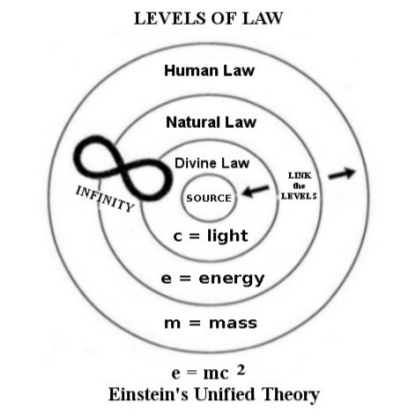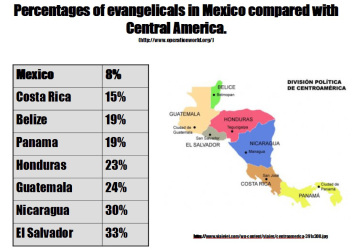Do your team meetings tend to suck the wind out of you, instead of filling your sails?
There’s nothing more annoying than a meeting that goes on and on and on – except maybe a meeting that goes on and on and on AND doesn’t accomplish anything.
Many ministry teams fritter away precious time during meetings on unfocused, inconclusive discussion rather than rapid, well-informed decision making. The consequences are delayed decisions that lead to wasted resources, missed opportunities, and poor long-range planning.
Want more successful meetings?Design your meetings for one purpose: to support decisions.

It is time to stretch your personal development and lead your church to stay focused and make timely decisions. If you are experiencing success and feeling the resulting complexity, consider implementing a three-rhythm process for effective execution.
THE QUICK SUMMARY – Read This Before Our Next Meeting, Al Pittampalli
How many times have you dreaded going to a meeting either because you viewed it as a waste of time or because you weren’t prepared?
Read This Before Our Next Meeting not only explains what’s wrong with “the meeting,” and meeting culture, but suggests how to make meetings more effective, efficient, and worthy of attending. It assesses when it’s necessary to skip the meeting and get right to work.
Read This Before Our Next Meeting is the call to action you (or your boss) need to create the organization that does the meaningful work it was created to do.
A SIMPLE SOLUTION
The profound tragedy of meetings is that everyone feels a benefit from calling a meeting but few of us benefit from attending.
Church leaders know in a real and visceral way that they have too many meetings, and too many of those meetings are bad! The resulting broken meeting culture is changing how teams focus, what they focus on, and most important, what decisions are made.
Ministry is a complex beast, and meetings can help tame the beast – but only meetings that insure intelligent decisions are made and to confirm that our teams are collaborating together in carrying out those decisions.
Church ministry teams don’t need standard, mediocre meetings that are all about making excuses and engaging in internal politics. It’s those types of meetings that keep leaders from doing the real ministry work they were called to do.
Traditional meetings are treated as just another form of communication. They’re just another item to be included in the same category as e-mail, memos, and phone calls. Meetings are too expensive and disruptive to justify using them for the most common types of communication, like making announcements, clarifying issues, or even gathering intelligence.
Seven Principles of the Modern Meeting
The Modern Meeting convenes to support a decision that has already been made. The Modern Meeting focuses on the only two activities worth convening for: conflict and coordination.
The Modern Meeting moves fast and ends on schedule. Traditional meetings seem to go on forever, with no end in sight. Strong deadlines force parties to resolve the hard decisions necessary for progress.
The Modern Meeting limits the number of attendees. If you have no strong opinion, have no interest in the outcome, and are not instrumental for any coordination that needs to take place, you aren’t needed in the meeting.
The Modern Meeting rejects the unprepared. The agenda should clearly state the problem, the alternatives, and the decision. It should outline exactly the sort of feedback requested, and it should end with a statement of what this meeting will deliver if it’s successful. Anything that’s not on the agenda doesn’t belong in the meeting.
The Modern Meeting produces committed action plans. These plans should include at least the following: 1) What actions are we committing to? 2) Who is responsible for each action? 3) When will these actions be completed?
The Modern Meeting refuses to be informational. Reading memos is mandatory. Teams must share complete thoughts that are actually worth reading and responding to – and everyone must read it all in advance.
The Modern Meeting works only alongside a culture of brainstorming. These sessions are dedicated to the creation of possibilities, a place where the imagination is allowed to run free and generate a plethora of ideas, from which innovation can be born.
Al Pittampalli, Read This Before Our Next Meeting
A NEXT STEP
Management genius Peter Drucker said that meetings were by definition a concession to deficient organization. Teams can either meet or work, but they can’t do both at the same time.
It’s time for your ministry team to do real work through a revised meeting structure by taking the following actions:
- Distribute the Seven Principles of the Modern Meeting listed above and ask your team members to review and reflect on them for the purpose of supporting the decision to establish a Modern Meeting process.
- Schedule a one-hour time in which each member of your team will prepare concerns and solutions to implementing the Modern Meeting process in ministry setting.
- Following this meeting, develop a set of action plans to implement the Modern Meeting process for a three-month trial period.
- Throughout the trial period, constantly reinforce progress and concerns via information shared among all team members.
- As a part of the trial, schedule weekly brainstorming sessions to help support the Modern Meeting process (see #7 above).
- At the conclusion of the trial period, decide and commit on following – or not following – the Modern Meeting process.
Many church leaders view meetings as a necessary evil to accomplish ministry assignments and tasks. The solution presented above demonstrates that not all meetings are necessary, and the right kind of meeting doesn’t have to be evil.
Excerpt taken from SUMS Remix 8-3 published February, 2015
Part of a weekly series on 27gen, entitled Wednesday Weekly ReaderRegular daily reading of books is an important part of my life. It even extends to my vocation, where as Vision Room Curator for Auxano I am responsible for publishing SUMS Remix, a biweekly book “summary” for church leaders. I’m going to peruse back issues of both SUMS and SUMS Remix and publish excerpts each Wednesday.
Advertisements Share this:




